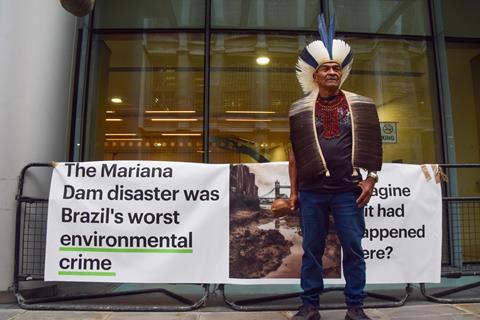Mining giant BHP has rejected a £36 billion mass claim of liability for Brazil’s worst environmental disaster by telling the High Court that it was not the operator of the dam whose collapse caused the damage.
In opening submissions at a 12-week hearing of a case brought on behalf of some 620,000 claimants, the Australia-based company argued it is a separate legal entity from Samarco Mineração, the Mariana dam’s operator, a joint venture between BHP and Brazil-based miner Vale.
For BHP, Shaheed Fatima KC, told Court 30 at the Rolls Building that ‘mere existence of controlling power’ was not enough to determine liability. ‘The claimants are right to accept that [being] major shareholders is not enough,’ she said. 'We say it is wrong to describe this case under the vague label of participation and involvement.'
The acts and omissions relied upon by the claimants, she said, merely show BHP was together with Vale, 'jointly controlling [as shareholders] Samarco and minding their investment. That contact does not create the line into something more, let alone that they were making operational decisions or operating the dam.'
She concluded: ‘BHP are not liable as direct or indirect polluters. They did not design the dam or operate it or maintain it. They did not have any licence to do so. BHP does not cross the line.’
Read more

In written opening submissions, BHP said there was ‘no basis’ for claims against BHP which has ‘never even been sued, let alone found liable’ in Brazil. BHP said the claimants ‘have been driven to adopt what BHP would suggest are often extreme, expansive and novel interpretations of Brazilian law and why their case rests, in large part, on far-fetched and untenable inferences’.
BHP denies all allegations against it, arguing it had ‘limited knowledge’ of the dam and ‘no knowledge that its stability was compromised’.
The trial, before Mrs Justice O’Farrell, will assess whether BHP, which was formerly listed on the London Stock Exchange, was responsible for the disaster, which killed 19 people and caused extensive pollution to water sources.
The hearing continues.




























